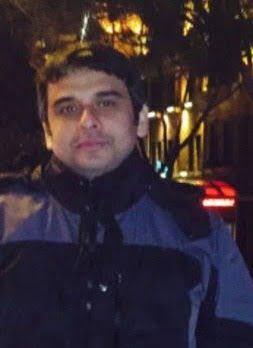Mathematics Bootcamp
August 4, 2022 2022-08-07 11:37Mathematics Bootcamp
A rigorous program to help bridge
the gap between introductory and graduate math courses.
Program Outline
- Module 1: Linear Algebra
- Module 2: Multivariable Calculus
- Module 3: Differential Equations & PDEs
- Module 4: Differential Geometry Module
- Module 5: Real Analysis
- Module 6: Complex Analysis
- Module 7: Stochastic Calculus
- Module 8: Mathematical Statistics
Upcoming Modules
Module 1 - Linear Algebra
Those attending the Linear Algebra module will gain proficiency in doing technical computations involving matrices such as solving eigenvalue problems and computing determinants. They will also be able to make the connection between such concrete computations and more abstract notions of vector spaces and linear maps between them.
Upon completion of this course, learners will be able to:
- Evaluate mathematical expressions to compute quantities that deal with linear systems.
- Characterize a linear system in terms of the number of solutions, and whether the system is consistent or inconsistent.
- Apply elementary row operations to solve linear systems of equations. Characterize a set of vectors in terms of linear combinations, their span, and how they are related to each other geometrically.
- Characterize a set of vectors and linear systems using the concept of linear independence.
- Construct dependence relations between linearly dependent vectors.
- Identify and construct linear transformations of a matrix.
- Characterize linear transformations as onto and/or one-to-one.
Module 2 - Multivariable Calculus
In this course, students will learn how the notions of calculus are extended to functions of more than one variable in ways that facilitate both computational and geometric aspects. The course will have a strong geometric emphasis and will furnish the students with expertise in higher dimensional theorems such as Green’s theorem, Stokes’s theorem, and Gauss’s divergence theorem.
Module 3 - Differential Equations & PDEs
Students of this course will learn about ordinary differential equations and partial differential equations which form the central core of many branches of sciences as well as finance and economics. They will learn to apply many powerful analytical tools, such as the series method, Laplace transforms, and Fourier transforms, to solve these equations.
Module 4 - Differential Geometry
As a result of this course, students in many branches of physical sciences, mathematics, and machine learning, will have the powerful tool of analyzing the geometry of higher dimensional curved spaces and describe the dynamics of systems of interest. The students will learn about the formal aspects of derivatives and integration of functions and their generalizations on such curved spaces of arbitrary dimensions.
Program Structure
Cycle 1
- Module 1 – From 13th August To 22nd September
- Module 2 – From 13th August To 20th September
Cycle 2
- Module 3 – Late September
- Module 4 – Early November
Upcoming Cycles
- TBA
Program Leads

Dr. Tibra Ali
Tibra Ali is a theoretical physicist with a strong research interests in string theory, quantum field theory, holographic duality and related areas. He has over a decade of experience teaching at highly reputed international educational programs including the Perimeter Scholars International at the Perimeter Institute for Theoretical Physics, Canada. He is passionate about raising the standard of physics and mathematics education and research in Bangladesh.

Dr. Syed Hasibul Hassan Chowdhury
Dr. Syed Hasibul Hassan Chowdhury obtained his PhD degree in mathematics (specialising in mathematical physics) in 2013 from Concordia University, Montreal, Canada. Earlier, he did his B. Sc and M. Sc in Physics from the Physics department of Dhaka University.
Program Fees
*Installments available
